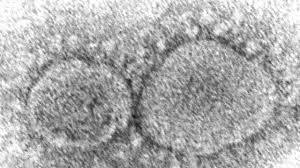Amid ongoing research into the long-term effects of COVID-19, recent studies suggest that individuals who have recovered from the virus may have a certain level of immunity against common colds caused by coronaviruses. This intriguing discovery raises questions about the potential implications for future vaccine development and our understanding of viral immunity.
Understanding the Connection
Scientists have long been intrigued by the phenomenon of cross-reactive immunity, where exposure to one virus can provide some degree of protection against related viruses. In the case of COVID-19, researchers have found that individuals who have been infected with the virus may have antibodies that recognize and neutralize other coronaviruses, including those that cause common colds.
Exploring the Research
Recent studies have provided compelling evidence supporting this idea. One study, published in the journal Nature, found that individuals who had previously been infected with SARS-CoV-2, the virus that causes COVID-19, had a reduced risk of developing symptoms when exposed to other coronaviruses. Another study, published in Science, identified specific antibodies in COVID-19 patients that were capable of neutralizing common cold coronaviruses.
Implications for Vaccine Development
The discovery of cross-reactive immunity has significant implications for vaccine development. By understanding how the immune system responds to coronaviruses, researchers may be able to design more effective vaccines that provide broader protection against a range of viral strains. This could lead to the development of vaccines that offer long-lasting immunity not only against COVID-19 but also against other coronaviruses that cause colds and respiratory illnesses.
Challenges and Considerations
While these findings are promising, there are still many unanswered questions. It’s unclear how long cross-reactive immunity lasts and whether it provides complete protection against other coronaviruses. Additionally, the effectiveness of current COVID-19 vaccines in inducing cross-reactive immunity remains to be fully understood.
The discovery that past COVID-19 infections may confer some level of immunity against certain colds is an exciting development in our understanding of viral immunity. While more research is needed to fully grasp the implications of these findings, they hold promise for the future of vaccine development and our ability to combat respiratory illnesses.








